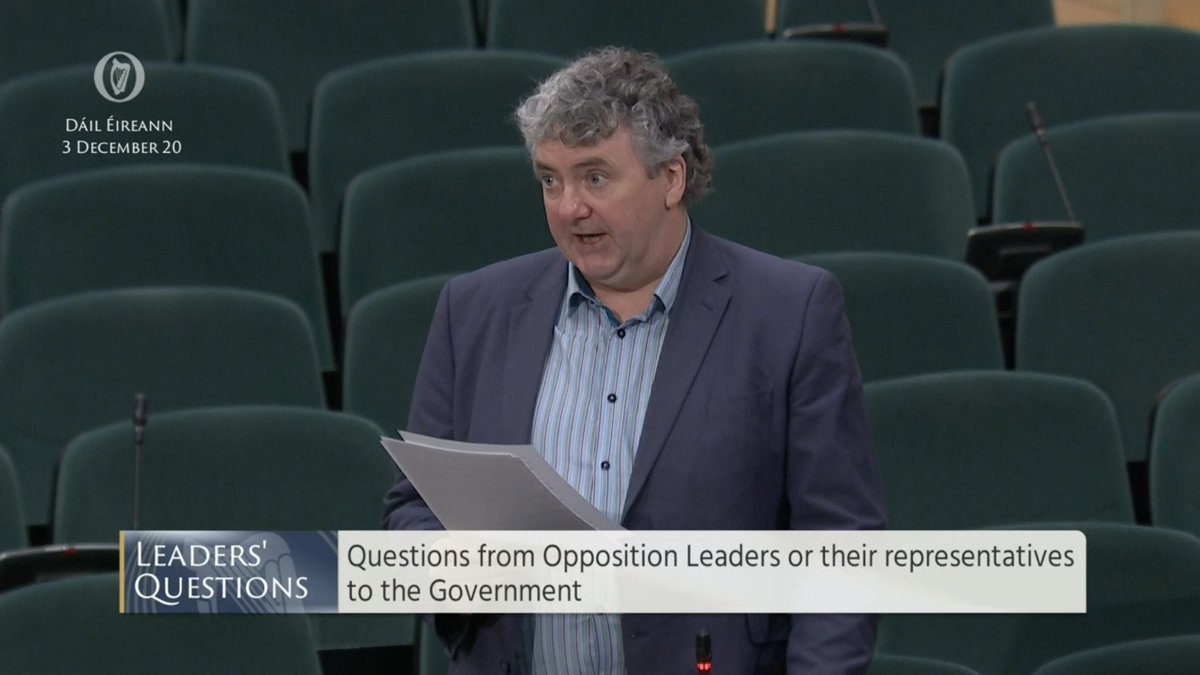- Pringle: We need a policy that recognises the importance of inshore fishing
- Pringle: Disabled people and carers face crisis of State neglect
- Pringle: Failed FF/FG housing policies forcing people to put their lives on hold
- Pringle welcomes Donegal council motion on Occupied Territories Bill: ‘We cannot stand by in the face of genocide’
Pringle Calls For Cost Of Disability Payment For Persons With Disabilities
- Updated: 8th December 2020

Independent TD for Donegal, Thomas Pringle, called on the Government to provide a weekly €20 cost of disability payment to persons with disabilities, asking, “Why is it always our most vulnerable who are left at the margins?”
Speaking in the Dáil this week on the International Day of Persons with Disabilities, Deputy Pringle said: “When Covid-19 hit earlier this year, hundreds of thousands of people were temporarily out of work and were provided with a Pandemic Unemployment Payment of €350 per week.
“It was the first time that the Government kind of admitted that people can’t really live on €203 per week.
“Shockingly, the maximum rate for the disability allowance is just €203 per week. For a number of years now, advocacy groups and persons with disabilities have been telling us about the extra costs associated with having a disability. They have been calling for a €20 cost of disability payment to be provided. When might this be introduced, Minister?”
The deputy said there are about 643,131 persons with disabilities living in Ireland, noting that the at-risk of poverty rate for people with disabilities in Ireland in 2018 was 36.9 per cent, nearly 10 per cent higher than the European average. This compares to 14 per cent of the general population, he said.
Deputy Pringle said: “Minister, why is it always our most vulnerable who are left at the margins? You have the opportunity to bring a small reprieve to persons with disabilities by introducing a €20 a week cost of disability payment.”
In the spirit of “nothing about us without us,” Deputy Pringle launched a survey in the lead-up to International Day of Persons with Disabilities to ask persons with disabilities what they would like to say to Government.
Deputy Pringle said: “As you can imagine, there were some heartbreaking and awe-inspiring responses. One young woman wrote to me about the disability allowance of €203 and how insufficient it is. Another response asked, ‘How are public and private employers being measured on their employment of those with accessibility issues?’ Another person said, ‘Please let us get jobs, and proper education.’ A further response said, ‘A person with a chronic illness will lose their medical card if they choose to take a full-time job. This means that it is often too much of a risk for them to work in case their health deteriorates, and they cannot afford the necessary treatments.’
“These comments raise important and pertinent points, Minister. The opportunities to work and study. There are parallel issues then around access to transport and infrastructure. What social protection matters could assist in these?”
Deputy Pringle is collecting all the responses to his survey in a document to send to the Taoiseach, Tánaiste and Ministers O’Gorman and Rabbitte.



